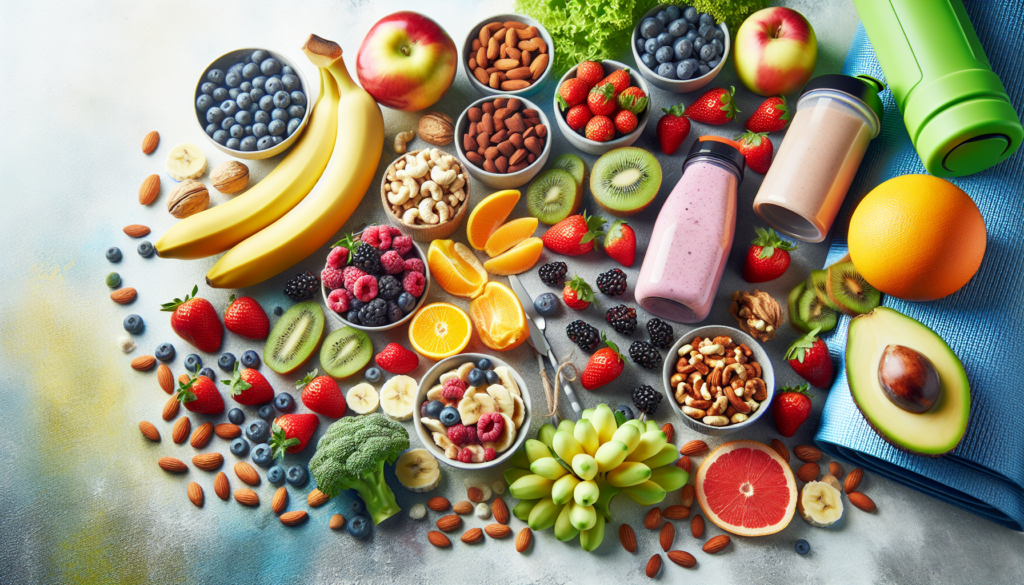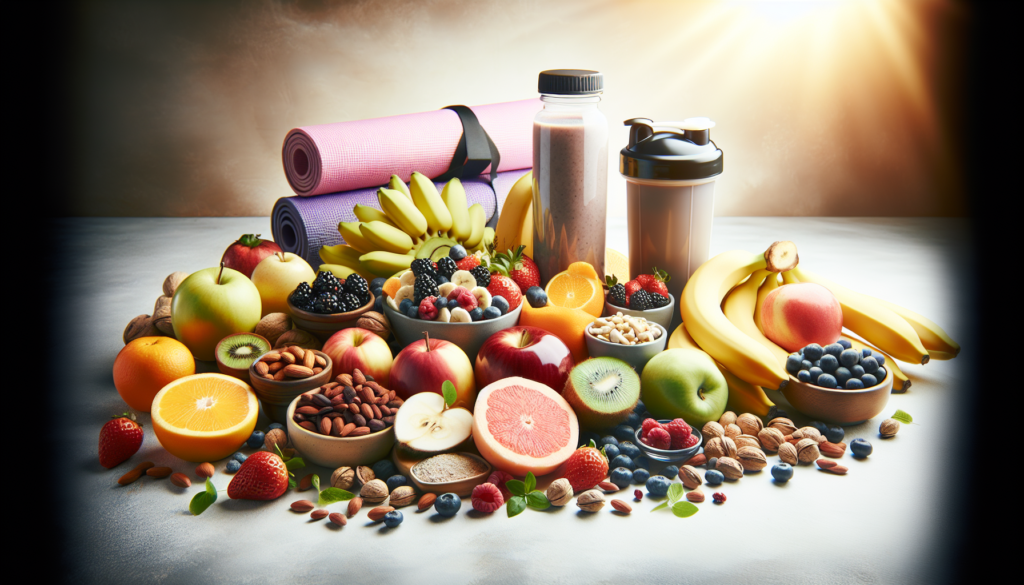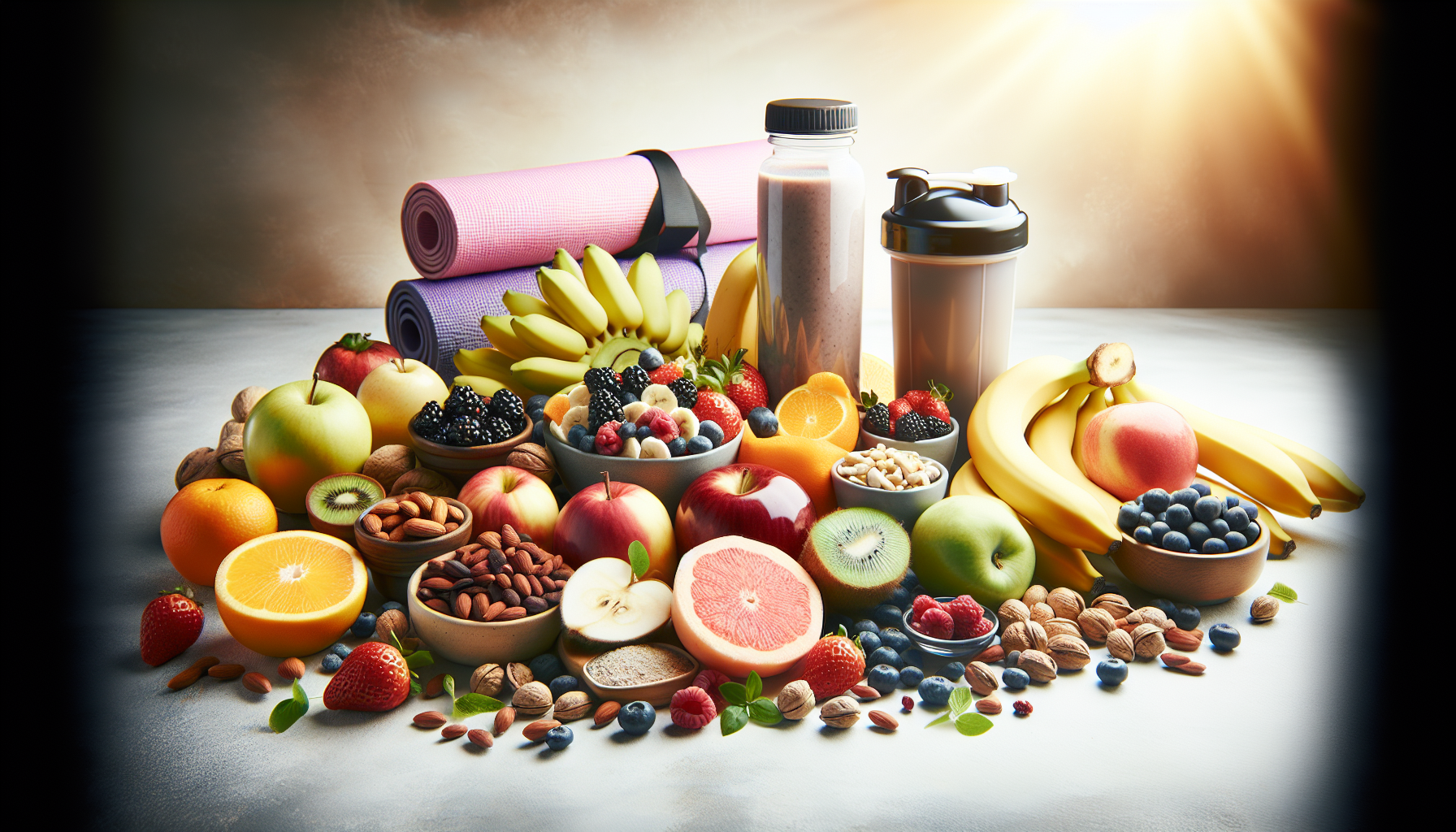Has there ever been a moment when you left the gym feeling like a Hercules, only to find yourself ravenous enough to eat an entire herd of buffalo? It’s that post-workout hunger that makes you suddenly crave everything from quinoa to chocolate cake with a scoop of protein powder on top. But before you raid the fridge and make questionable life choices, let’s talk about what your body actually needs after a workout. Choosing the right nutrients is like choosing friends; select wisely, and they’ll help you thrive. Choose poorly, and you might find yourself questioning your life decisions.

Why is Post-Workout Nutrition Important?
Your post-workout meal isn’t just an opportunity to reward yourself for not tripping on the treadmill. It plays a fundamental role in helping your body recover, rebuild, and prepare for future challenges. Think of it as repairing the damages from battle—the battle against gravity, that is.
Frequently, after an intense workout, your muscles turn into divas, demanding attention and pampering. Starving them of essential nutrients would be akin to skipping the maintenance of a car – eventually, something’s gonna give.
The Science Behind It
During exercise, your muscles consume their glycogen stores, which are essentially their fuel reserves. If a muscle were the castaway on a deserted island, glycogen would be the coconut milk keeping it alive. Additionally, muscle proteins might be damaged, and replacing these proteins is essential for muscle repair and growth. That’s where your meal steps in, like a knight in shining armor, to replenish glycogen and provide protein for muscle repair.
The Carbs, The Proteins, and The Fats: The Essential Trio
Let’s break down the starring roles of your post-workout nutrition saga. Not to be confused with a soap opera, where nobody really knows what’s going on but they’re intrigued nonetheless.
Carbohydrates: The Energy Restorer
Carbs are often painted as the villain in the nutritional world, probably because they’re so darn tasty. However, after you’ve sweat out half your stress and potentially all your grace on the gym floor, carbs become your best friend. They replenish your muscle glycogen levels. When you consume carbs after an exercise, your muscles become as receptive as an unsolicited confidant at a bar. This also means that carb timing is crucial.
How Much and When?
The ideal carbohydrate intake post-workout should be anywhere from 0.5 to 0.7 grams per pound of body weight, which might sound like a math problem but hang with me.
| Weight (lbs) | Carbohydrates (grams) |
|---|---|
| 120 | 60 – 84 |
| 150 | 75 – 105 |
| 180 | 90 – 126 |
| 210 | 105 – 147 |
Timing is everything, my friend. Aim to consume these carbohydrates within 30 minutes to two hours after exercising for optimal recovery. Imagine it like going to a hair salon; arrive at the right time, and you’ll get the perfect blonde highlights; show up late, and you risk walking out with zebra stripes.
Protein: The Repair Specialist
Protein isn’t just for those flexing their way to a bodybuilding competition. Anyone who exercises regularly should regard protein as the mighty repairman it is. Consuming protein post-workout helps initiate muscle protein synthesis, which is a fancy term for your muscles’ version of a much-needed spa day.
How Much Protein Should You Consume?
For most athletes, approximately 20-40 grams of protein would do the trick. That’s the equivalent of either a well-stacked sandwich or tackling an overly zealous egg-based dish.
| Weight (lbs) | Protein (grams) |
|---|---|
| 120 | 20-30 |
| 150 | 25-35 |
| 180 | 30-40 |
| 210 | 35-45 |
Fats: The Often Misunderstood Friend
While fats aren’t as essential as carbs and proteins post-workout, they also shouldn’t be avoided like a questionable blind date. Fats help with vitamin absorption and provide a feeling of fullness so you don’t find yourself eating everything in sight like a cartoon character. However, try to keep the post-workout meal light on fats to allow quicker absorption of carbohydrates and proteins.
Essential Vitamins and Minerals: The Supporting Cast
Remember, while macronutrients (carbs, protein, and fat) play the lead roles, micronutrients are the unsung heroes of the post-workout world. Just like using a shopping list at a store, you might not notice it, but it’s incredibly helpful to have these guys around.
B Vitamins: The Energizer Bunnies
B vitamins, which include a whole spectrum like B12 and folic acid, help convert the food you’ve just ingested into usable energy. They are like the tireless little elves ensuring your internal engine runs smoothly.
Vitamin C and E: The Protectors
Ah, antioxidants, you magical creatures. These vitamins work to reduce oxidative stress caused by exercise, which is science speak for “helping your tired self not feel like you’ve survived a tornado.”
Minerals: Calcium,Iron, Magnesium, and Potassium
Calcium helps in muscle contractions, iron carries oxygen to your muscles, magnesium chips in for muscle function, and potassium is the electrolyte replenisher. Getting these minerals after exercising can greatly aid in recovery and keep you operating at your best.
Hydration: The Unsung Hydration Symphony
What’s the first rule of working out? Stay hydrated. What’s the second rule of working out? Stay hydrated! Water is essential post-workout, as your body needs to replenish the fluids lost in the form of sweat. Think of water as the magic potion that makes everything better.
Electrolyte Balance
After intense exercise, or if you’re someone who sweats like a snowman in the summer, your body will need electrolytes just as much as it needs carbs and proteins. Often found in sports drinks or in bananas (our favorite monkey-endorsed snack), ensuring proper electrolyte levels helps maintain hydration balance, muscle contractions, and nerve function.
How Much Water?
It’s advised to drink about 16-24 ounces of water for every pound lost during exercise. It isn’t just about guzzling down H2O but doing so efficiently, so you don’t find yourself running to the bathroom 47 times an hour. Quite a workout on its own, isn’t it?

Timing is Everything: Post-Workout Nutritional Timing
Fitness enthusiasts often throw around terms like “anabolic window,” which isn’t as scandalous as it sounds. It’s believed that muscles are most receptive to nutrients during the first 30 to 45 minutes post-exercise. During this time, your muscles resemble a toddler being offered a cookie – they want it and they want it now.
Real-World Meal Examples
In case real food suggestions tickle your appetite more than theoretical discussions, here are some delectable meal examples aiming to satisfy your inner foodie while ticking all the nutritional boxes.
Chicken Wrap with Veggies
Wrap grilled chicken breast with some mixed greens in a whole wheat tortilla. Add a touch of hummus for flavor. It’s like a burrito had a health-conscious cousin.
Greek Yogurt with Mixed Berries
A delight for your taste buds, this protein-rich yogurt can be topped with fresh berries and a sprinkle of granola. It’s essentially a dessert in disguise, only much healthier.
Protein Shakes
Quick, efficient, and you can pretend you’re partaking in some alchemist potion. Blend protein powder with bananas, almond milk, and maybe sneak in some peanut butter for good measure.
Omelet with a Slice of Toast
Whip up eggs with a side of multi-grain toast. It’s as classic as they come, much like the “Friends” series, but healthier and with fewer laugh tracks.
Conclusion: Your Nutritional Journey
Post-workout nutrition is crucial and can be a mix of precision, preparation, and a touch of delicious improvisation. It’s not just about consuming food; it’s about consuming the right kind at the right time.
So next time you’re fresh off a workout and contemplating whether to reach for a protein shake or the leftover cake, think back to this guide. Remember, chocolate cake (despite its charm) won’t help your muscles. They have standards, after all.
In the words of a wise philosopher (or was it my yoga instructor?): “Eat intelligently, not vengefully.” And so, I leave you with your post-workout musings. Happy fueling!
